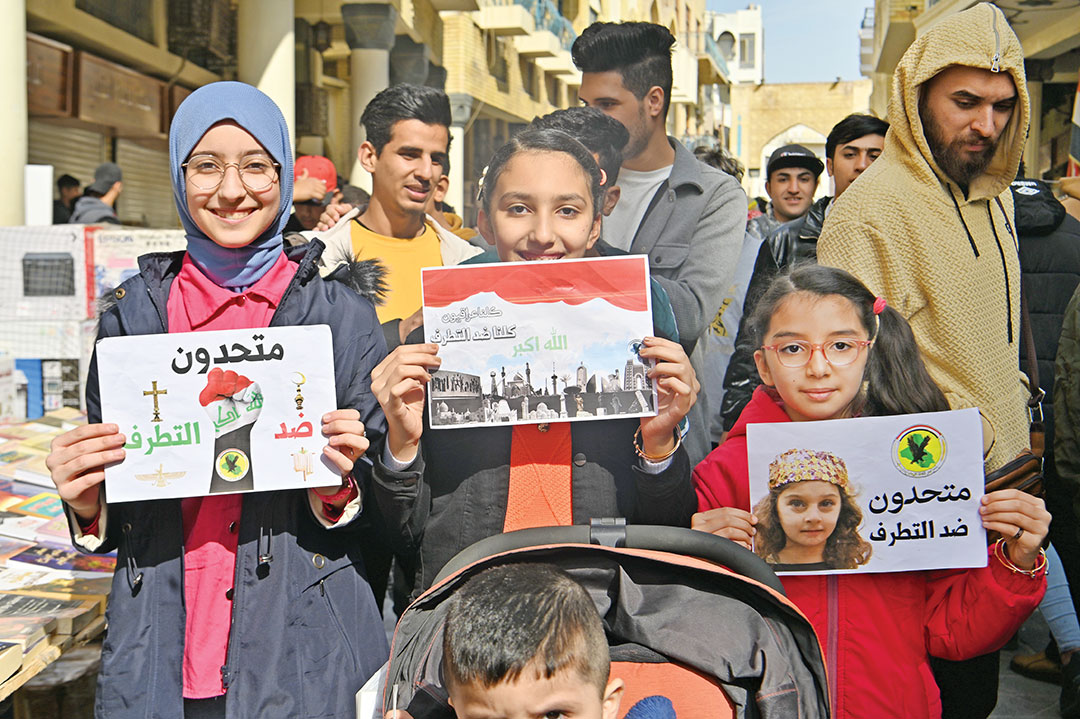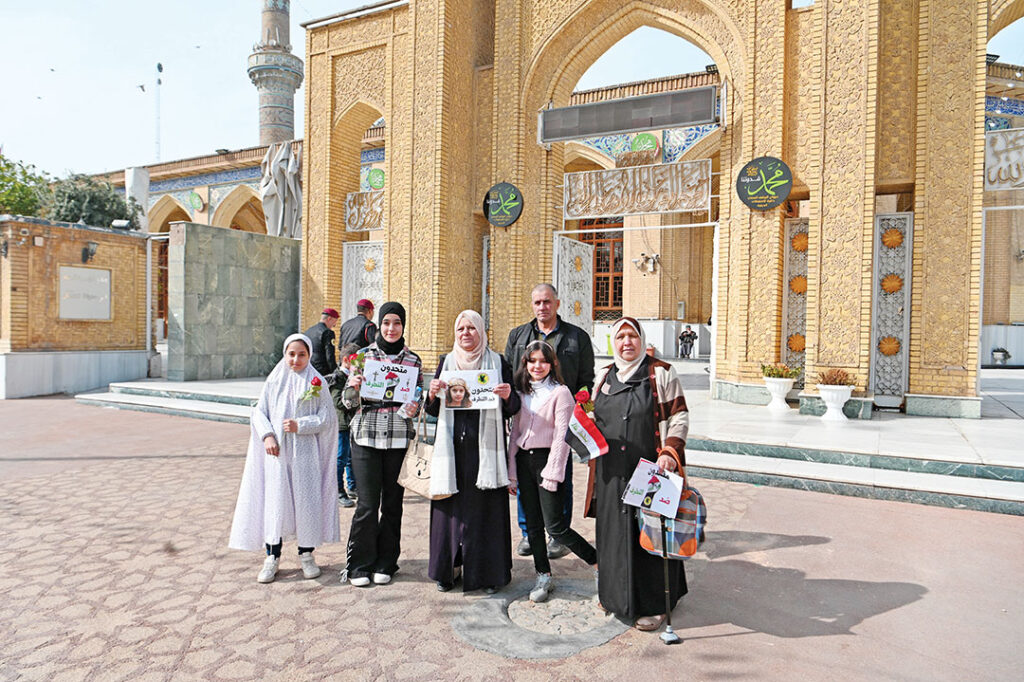IRAQI COUNTER-TERRORISM SERVICE
Owing to the varying ethnic and racial identities of a country whose boundaries have shifted from one civilization to another since antiquity, Iraq is defined by multiculturalism. Despite being a point of pride for an Iraqi society that has made it part of its own national and historic identity, such diversity can also present a fertile environment for the growth of competing religious, sectarian and political ideas and ideologies. Extremists can exploit these to spread division, transforming sectarian diversity into violent conflicts between ethnic and racial groups that close themselves off from one another to claim sole ownership of the country’s culture, beliefs and political fortunes.
Iraq has gone through historical periods of sectarian and ethnic conflict not so dissimilar to those of other nations and peoples in Europe or the Arab and Islamic worlds who themselves have suffered the horrors of societal strife as a result of conflicting narratives and visions of religious scriptures and political stances.
Saddam Hussein’s domestic policies under the banner of the Baath Party widened the gap among the diverse populations that make up Iraqi society, turning the nation into divided and feuding communities and resulting in the loss of a unifying national identity.
Neighboring countries with malicious intent took advantage of these divisions after the fall of the Saddam regime and paved the way for extremist groups to penetrate the Iraqi landscape. While messages and banners varied, rallying cries began to emanate across Iraq with the aim of establishing groups that would set up transitional forces to impose their ideological and political will on the new regime in Iraq. The most dangerous of these groups was al-Qaida, which had declared war on the people of Iraq by launching a series of terrorist attacks targeting Iraqi Christians, Yazidis and other ethnic minorities, excluding only its own followers from acts of terror. Thus began a new phase of class, sectarian and ethnic strife that plunged Iraqi society into existential crisis by transforming a widening gap of differences into a river of blood spilled among peoples of a single country.
This outline of sectarian history demonstrates the scale and difficulty of any attempt to reconstruct the social fabric of Iraq. Within the Iraqi Counter-Terrorism Service (CTS), our strategic vision for countering violent extremism starts with the slogan “Iraq is our Identity,” which we use as a launching point to combat the kind of extremism that leads to terrorism.
Since the establishment of the CTS in 2007, its leadership has developed programs to counteract terrorist organizations’ various media outlets. We focus on prevention, exposing ideological disinformation and confronting our enemies ideologically and in the field.

We counter attempts to create closed sectarian or ethnic social environments that are easy to control through misleading ideologies and media propaganda — the most effective and influential weapon extremist groups exploit to seize the minds of boys and young men in closed societies.
CTS leadership has focused on breaking the psychological barriers erected by terrorist organizations after the fall of the previous regime, aware that we got a late start as a state because of the political circumstances of the post-Saddam democratic transformation. Today, state institutions understand their social, economic and security responsibilities better than in past years. Psychological and media capabilities were subsequently introduced into CTS to implement plans to break barriers and bridge psychological and ideological gaps. Initial operations were launched in the Al-Jada camp in southern Nineveh province to communicate openly with displaced families to disrupt recruitment and exploitation by terrorists and other extremists.
CTS counters violent extremism by drawing upon intelligence analysis and studies conducted by researchers based on testimony from arrested terrorists regarding the psychological and ideological motivations that drove them to extremism and violence. It also analyzes the social environments from which they emerged. With this information, the Iraqi Armed Forces can engage formerly isolated communities and build relations with a clear view of the needs, challenges and risks involved. At this point, the process of downplaying religious, sectarian and ethnic sub-identities that hinder Iraqi national unity can begin.
Activities carried out by counterterrorism units covered the majority of Iraq’s provinces. Kirkuk — with its churches, mosques, schools and broad societal spectrum — was a key area of focus for an operation called “You Are the Sons of Iraq.” From there, activities moved to Mosul in the north, to Nasiriyah, and to Samawah in the south with the message “We the sons of Iraq reject extremism.”
CTS leadership also laid careful plans for Iraqi Christians. We visited and communicated with them by holding events during Christian celebrations and holidays attended by CTS leadership, officers and staff who presented gifts and mutual messages of peace as a solid foundation to rebuild national cohesion and provide reassurance to our brothers and sisters from the Christian community in Iraq.
Counterterrorism operations face deep-seated and geographical challenges: Extremism in Iraqi society varies from region to region as a result of social and economic conditions and the ability of extremists to penetrate a given area or city. Some regions have been exposed to extremist ideology longer and more deeply. This is especially the case with the children and young people subjected to systemic brainwashing at the hands of Daesh in areas under its control. Many were forced to witness the beheadings of their peers falsely accused by terrorists of being apostates or spies. Because these traumas leave scars on the memories of children and young people, psychological professionals provide extensive rehabilitation.
Support from organizations like the United Nations and the International Coalition has buttressed Iraq’s own efforts to counter violent extremism. They have provided resources, equipment and specialized training to monitor and impede the messages of extremism and hate speech broadcast by Daesh media. After years of combating terrorism, Iraqis have proved themselves capable of defeating Daesh on the ground and in the digital space.
Today, signs of a unified Iraqi identity embracing Sunnis, Shia, Arabs, Kurds, Muslims, Christians and Yazidis under the flag of a single democratic Iraq, proud of its common history and bright future, abound throughout the country.

